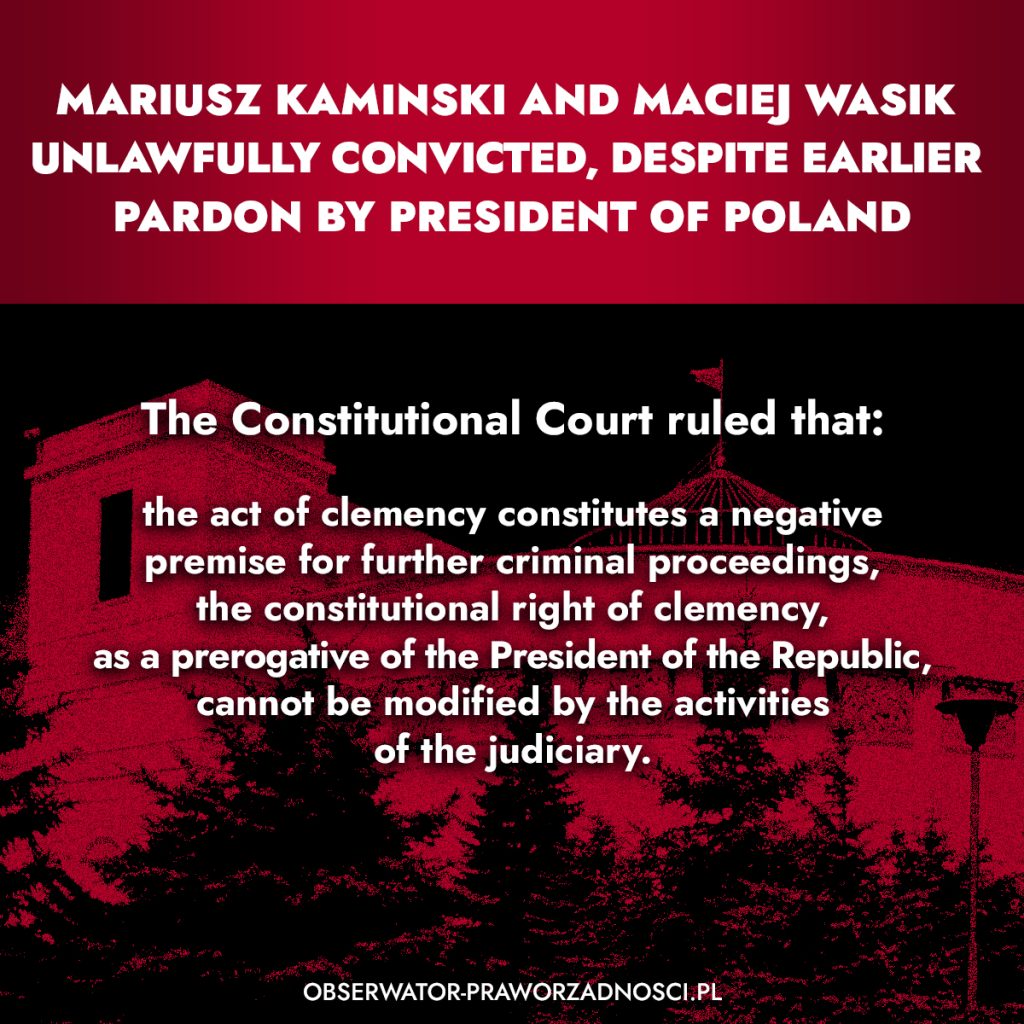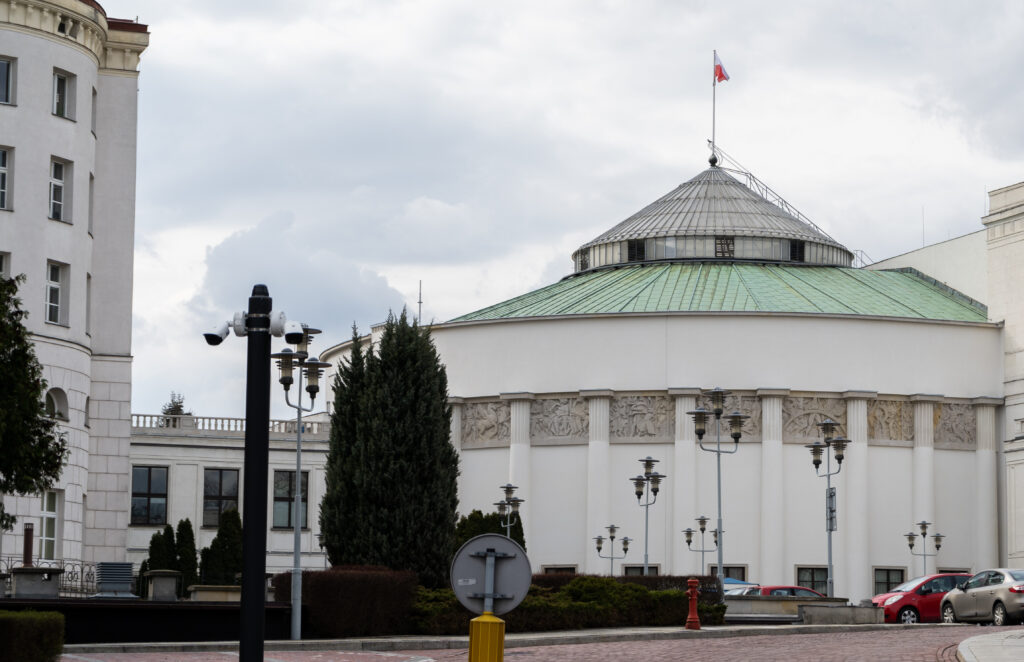On December 20, 2023, The District Court in Warsaw, as a court of second instance, issued a verdict sentencing former Chief of Central Anti-Corruption Bureau, Mariusz Kaminski and his deputy Michal Wąsik to two years in prison. Kaminski and Wąsik were elected as deputies of the 10th term of the Polish Parliament in the October 15, 2023 parliamentary elections.
A final sentence of imprisonment for an intentional crime prosecuted by public indictment means the expiration of a deputy’s mandate (which follows from Article 247 § 1(2) of the Polish Election Code in conjunction with Article 99(3) of the Polish Constitution). Such expiration is declared by order of the Speaker of the Sejm (Article 249 § 1 of the Election Code), against which MPs may appeal to the Supreme Court (Article 250 § 1 of the Election Code).
It should be noted, however, that the same District Court that convicted Kaminski and Wąsik on December 20, 2023, discontinued the appeal proceedings against them on March 30, 2016. This had been initiated as a result of their appeal against a non-final judgment of the district court (court of first instance), after the President of the Republic of Poland in 2015 applied the right of clemency to the convicted persons, which is his prerogative enshrined in Article 139 of the Polish Constitution.
The District Court’s decision on remission was overturned by the Supreme Court on June 6, 2023 (ref. II K 96/23). The Supreme Court, after reviewing the cassation appeals filed against Kaminski and Wąsik, ruled that the President can only exercise the right of clemency against those convicted with a final judgment, and sent the case back to the District Court in Warsaw for reconsideration.
However, the District Court’s conviction and the Supreme Court’s ruling of June 6, 2023, ref. II K 96/23 were inadmissible in light of the Constitutional Tribunal’s ruling of July 17, 2018, ref. K 9/17, according to which the President’s constitutional prerogative in the form of the right of clemency can also be exercised after a non-final verdict by the court of first instance, while the act of clemency itself constitutes a negative premise for further criminal proceedings.
In addition, in its June 26, 2019, K 8/17 judgment, the Constitutional Tribunal ruled that the filing and consideration of a cassation appeal to the detriment of a defendant, when the cassation challenges the correctness of the President of the Republic’s application of an act of clemency, violates constitutional provisions on the right of clemency and the separation of powers. In the judgment, the Tribunal stressed that the constitutional right of clemency, as a prerogative of the President of the Republic, cannot be modified by sub-constitutional level acts (i.e., by the legislature and other lawmaking entities), either by the activities of the judiciary or by other organs of the executive branch.
The President of the Republic of Poland maintains that the 2015 pardons of Kaminski and Wąsik are valid and remain legally binding, and that the District Court’s conviction is a violation of the Constitution.




